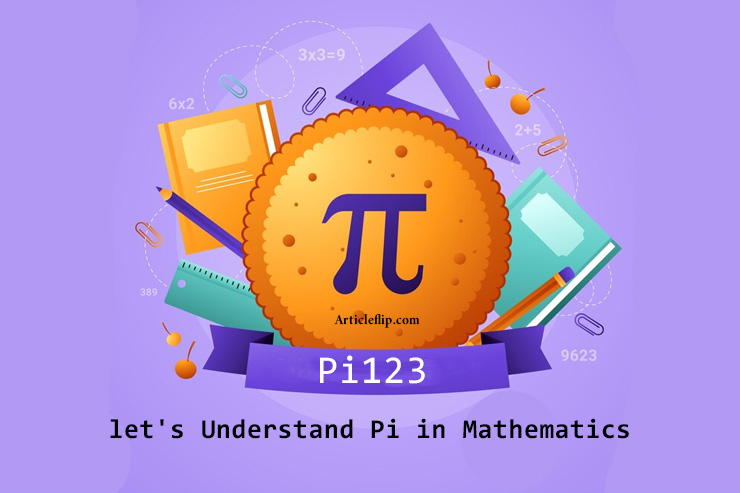Table of Contents

Introduction to pi123
Pi, denoted by the Greek letter π, is a fundamental mathematical constant representing the ratio of a circle’s circumference to its diameter. It holds immense significance in various mathematical calculations, scientific research, and real-world applications. Understanding pi, its value, history, and applications provides insights into its role in different fields.
What is pi123?
pi 123 is an extension of the well-known Pi, showcasing the exploration of Pi to higher precision levels. It seeks to calculate pi to more decimal places, uncovering new facets of this transcendental number.
Importance of pi123 in Mathematics
The quest for more precise values of pi has been an integral pursuit in mathematics. pi 123 exploration contributes to the advancement of mathematical understanding, aiding in various mathematical theories, computations, and algorithms.
History of pi123
The journey of calculating pi dates back centuries. From ancient civilizations to modern mathematicians, each era has witnessed attempts to determine pi’s exact value. The evolution of methodologies and techniques in pi’s computation leads to the emergence of pi 123.
The Value of pi123
How pi123 is Calculated?
Calculating pi to higher decimal places requires sophisticated algorithms and computational power. Mathematicians employ diverse methods, including series expansions, algorithms like Machin’s formula, and advanced computing technologies to compute pi 123 with increased precision.
Applications of pi123 in Real Life
The precision of pi 123 finds applications in fields like astrophysics, engineering, and cryptography. From calculating the orbits of celestial bodies to designing high-precision machinery, pi123’s accuracy plays a pivotal role.
Interesting Facts about pi123
Pi Day Celebration
Pi enthusiasts globally celebrate Pi Day on March 14th (3/14) due to its resemblance to the first three digits of pi (3.14). It’s a day filled with mathematical activities and events, emphasizing the significance of pi in our lives.
Uniqueness of pi 123
Pi 123’s uniqueness lies in its endless and non-repeating decimal expansion, making it a constant of perpetual intrigue and research.
Challenges and Research on pi 123
Attempt to Calculate pi 123 Precisely
The pursuit of calculating pi to its utmost precision remains an ongoing challenge. Researchers continually develop new algorithms and supercomputing technologies to push the boundaries of pi’s accuracy.
Current Research and Innovations
Cutting-edge innovations in quantum computing and algorithms show promise in achieving unprecedented precision in pi’s calculation. The quest for the ultimate value of pi continues to drive breakthroughs in various scientific disciplines.
Conclusion
In conclusion, pi 123, an extension of the iconic mathematical constant pi, represents the ongoing quest for greater precision and understanding in mathematics. Its calculation, historical significance, real-world applications, and ongoing research underscore the importance of this transcendent number in diverse fields.
FAQs
Is pi 123 an irrational number?
Yes, pi 123, like its predecessor pi, is an irrational number, meaning its decimal representation neither ends nor repeats.
Why is pi important in mathematics?
Pi holds significance as a fundamental constant in geometry, trigonometry, and calculus, serving as a bridge between the diameter and circumference of a circle.
Are there any practical applications of pi 123?
Yes, the precision of pi 123 finds applications in various scientific calculations, engineering designs, and cryptographic algorithms.
How many decimal places of pi 123 have been calculated so far?
As of the latest research, pi 123 has been computed to trillions of decimal places, with ongoing efforts to push this precision further.
What is the significance of Pi Day?
Pi Day celebrates the mathematical constant pi and its contributions to various fields, observed on March 14th (3/14) globally.
If you found our content helpful don’t forget to share it on your social media: Twitter
More Articles
